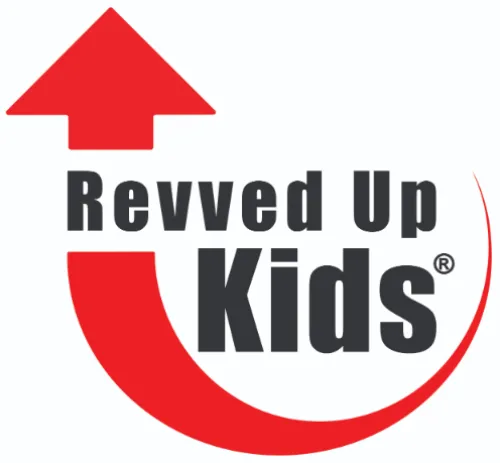He is a trafficker, selling our children for sex in Atlanta, and according to a 2014 article by the Urban Institute, he makes just under $33,000 a week.
January is Human Trafficking Awareness Month, and January 11 is National Human Trafficking Awareness Day. Now that you've learned something new about child sex trafficking, are you brave enough to read this entire article and learn more?
Trafficking, especially child sex trafficking is an issue that makes most people's skin crawl, yet it's a thriving business around the world, generating tens of billions of dollars annually for the traffickers. This article provides five quick facts and four simple action steps for readers. You don't have to be rescuing children off the street to be impactful; simple steps by caring adults can cause meaningful change.
FACT #1 The issue is referred to by several names and acronyms, Commercial Sexual Exploitation of Children (CSEC), Domestic Minor Sex Trafficking (DMST), human trafficking, and child sex trafficking. CSEC and DMST are used interchangeably by many experts, however, CSEC refers to a wider spectrum of victims, those who are transported internationally and sold into sexual slavery. DMST focuses on United States citizens under age 18 who are sold into sexual slavery. When someone says "human trafficking," it refers more generally to the entire spectrum of trafficking, including adults and children, labor and sex. Sex trafficking accounts for the vast majority of all trafficking, over 80%.
FACT #2 It does happen in your back yard. Research shows that in Atlanta, while sex tourism (out of towners purchasing sex with children when they are here for conventions or meetings, or just passing through our airport) does occur, most individuals who purchase sex with a child live in the Atlanta suburbs; 2/3 live north of I-285. These are your neighbors and your co-workers, the people sitting next to you in church, and they are buying sex with children on a regular basis.
FACT #3 Children don't choose this life! Georgia Cares, an Atlanta-based rescue and restoration organization, indicates that more than 3/4 of the children they serve indicate that they were sexually abused before they were trafficked. Child sexual abuse is the root of this issue. Often children who are sexually abused will run away from home, and most runaways are approached by someone in the sex industry within two days of being on the street. Often children who are in foster care because of dysfunction in their families will be lured by traffickers who promise them a glamourous life and lots of money. Often children who are in loving families but are experiencing the growing pains and unhappiness that accompanies adolescence will retreat to online relationships to fill a void, and that's where the traffickers find them. Our role as adults is to recognize that no child makes a choice to sell themselves for sex, it's a complex situation that involves masterful manipulation over time by the traffickers. Blaming a child for falling victim to sexual exploitation is not the answer.
FACT #4 The average age of a trafficking victim is 12-14 years old. Local high schools are a prime recruiting ground. Traffickers are male and female. Some male traffickers also use females to lure other females into trafficking.
FACT #5 There has been an explosion in sex trafficking in recent years because criminals have discovered that selling a child is more lucrative than selling a drug, and it can be done online. A drug can only turn a profit one time, a child can generate $300-$2000 per day. Buying a child for sex online is as easy as buying a pizza. Sites like Craigslist and Backpage do little to filter the prolific number of ads that sell children. Traffickers thinly veil their advertisements by using words like "young" in their descriptions. Photos of 12-year-old girls in provocative clothing and makeup often make them appear to be young adults.
EASY ACTION STEPS: If every reader would take just one or two of the simple action steps from the list below, momentum can be created in stopping this tragedy:
ACTION STEP #1 Change your vocabulary about this issue. Instead of using the word "Pimp" which has been glorified in pop culture over the years, use the word trafficker. Instead of using the word prostitute, use the word victim. Instead of using the word John, use the word buyer.
ACTION STEP #2 Take advantage of the ECPAT Code. This is a group of organizations in the travel and tourism industry who are committed to preventing trafficking on their properties. When you travel or host events for pleasure or business, be deliberate in selecting organizations who are Code members to receive your dollars; let them know that their action is important.
ACTION STEP #3 Know the signs of a trafficked child in your midst. Many trafficking victims are attending school and participating in extra-curricular activities. Look for attire and make up that is provocative or makes a child look older than she really is; look for tattoos (often traffickers will brand their victims with their name or a bar code tattoo; in Georgia, it is illegal to get a tattoo if you are under age 18); look for older friends or older boyfriends; look for expensive accessories (purses, shoes, jewelry, etc.). Any of these could be a sign, but several of them together are a red flag. Report suspected trafficking to national hotline 1-888-373-7888.
ACTION STEP #4 Be BOLD! Share this post, look for other information about CSEC, participate in the conversation by letting people know you care. Social media is a powerful platform and it's being used to lure our children; let's use it to solve the problem! Until caring adults in the community are willing to talk about it openly and honestly, the traffickers will continue to take our children. You've come this far, will you take another step and share this article with others? Will you take another next step and learn more by clicking on the links below?
FBI Bulletin on Human Trafficking
Revved Up Kids has trained tens of thousands of children to recognize dangerous people, avoid unsafe situations, and escape attackers. Our training programs are available for boys and girls in K-12th grade, for parents, and for youth serving organizations. Contact us to discuss protecting the children you love from predators and violence, 678.526.3335.

